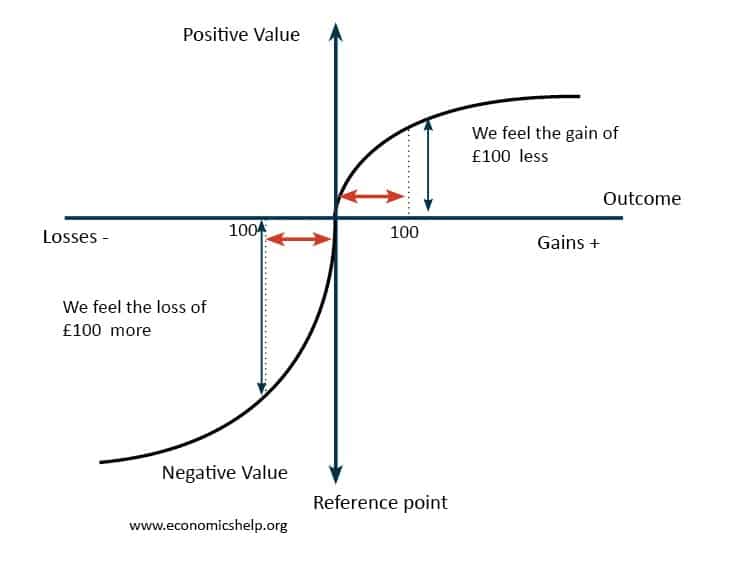Status Quo bias is an emotional preference for the current situation. In economics, status quo bias can cause individuals to make seemingly non-rational decisions to stay with a sub-optimal situation.
For example, over a lifetime, it is rational to save for a pension. However, some individuals may have a reluctance to change their current situation and take out a pension. In addition to status quo bias, this refusal to save for a pension is related to a present situation bias (preference to maximise utility in the present moment)
Examples of status quo bias
1. Choosing the default option
When given a choice, individuals are more likely to stick with the current default option. For example, two US states New Jersey and Pennsylvania offered two choices related to insurance law. One option is more expensive with full rights to sue. The other option is less expensive but limited rights to sue.
- In New Jersey, the default option was the cheaper version. Most citizens selected this.
- In Pennsylvania, the default option was the more expensive version. Most citizens selected this.
2. Preference for old plans
In Germany, a small town had to be relocated due to a mining project. Citizens were offered many plans for a new town, but citizens voted for a plan which closely resembled the old town with an inefficient serpentine look which had evolved for no rhyme or reason over the years.
3. Brand allegiance
Sticking with established brands is an example of status quo bias. In blind testing, preference for strong brands like Coca Cola or Budweiser is much lower than when people chose brand they recognise.
Why people prefer the Status Quo
1. Endowment effect. In behavioural economics, we can observe a preference for people to give a higher weighting to what they already have. We become attached to our current situation and goods.

2. Fear of unknown
Psychologically people may express a feeling of ‘better the devil you know.’ In other words, people dislike uncertainty and are risk-averse at making a choice.
3. Costs of making choices
Suppose every day you drink at Starbucks. Coffee is good. It could be better, but it could be worse. If you go to a foreign city, Starbucks offers a reliable experience. Going to an independent shop means you have to be more careful in trying to evaluate the quality – it could be better or worse. Going to Starbucks (what you are used to) reduces worry over making a choice.
Interestingly Samuelson, W., & Zeckhauser (1988) found a preference for the status quo was greater with more choices. This suggests that with more choices the cost of making decisions rises, making the status quo more attractive.
4. Inertia
People may simply not want the hassle of changing.
5. Repeated exposure gives familiarity and attachment
If we experience something every day, we develop an attachment to the good. For example, if we take a daily paper, we become a loyal reader
6. Loyalty
An aspect of human nature is loyalty. If we support one sports team, we have a reluctance to change. We keep supporting through good times and bad times. Loyalty is seen as good quality. Changing can indicate a lack of reliability.
Is status quo bias rational or irrational?
If we stick with current choices to avoid the costs of making decisions, then it can be seen as a rational choice as we save calculation costs. However, if we refuse to consider alternatives on the basis we only want to stay with what we have then it becomes more irrational.
References
Kahneman, D.; Knetsch, J. L.; Thaler, R. H. (1991). “Anomalies: The Endowment Effect, Loss Aversion, and Status Quo Bias”. Journal of Economic Perspectives. 5 (1): 193–206. doi:10.1257/jep.5.1.193.
Samuelson, W., & Zeckhauser, R. J. (1988). “Status quo bias in decision making”. Journal of Risk and Uncertainty, 1, 7-59.
Related
